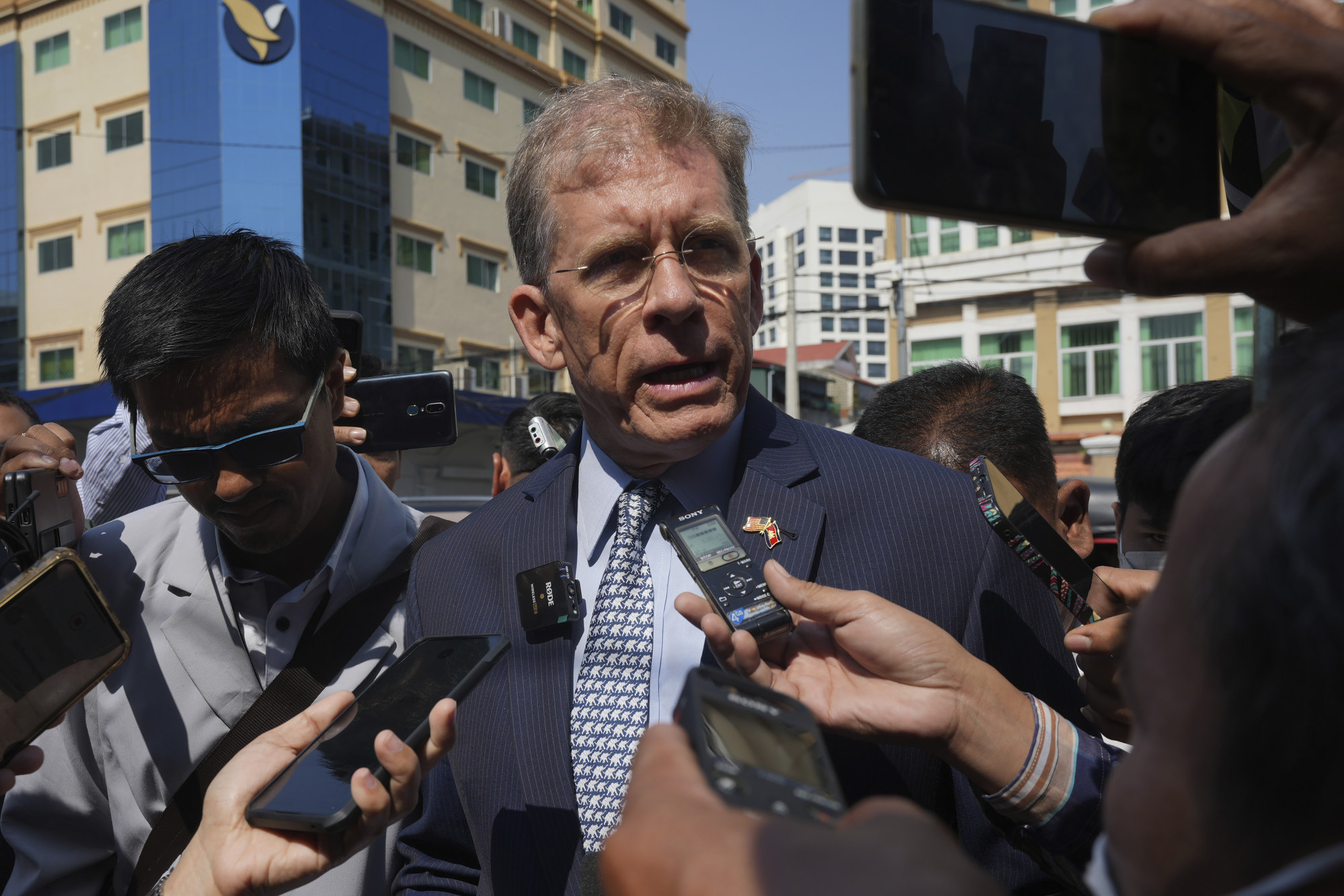
Cambodia’s jailing of Kem Sokha will ensure Hun Sen’s son gets ‘smooth transfer’ of power
- Harsh length of Kem Sokha’s 27-year jail term sends ‘clear, intimidating message’ to opposition ahead of elections in summer
- Hun Manet, the oldest of Hun Sen’s children, has been groomed to succeed him
Kem Sokha, 69, was last week sentenced by the Phnom Penh Municipal Court to 27 years in jail for treason, following a three-year trial in which a judge had deemed his election campaigning and civil society work were aimed at sparking a “colour revolution”.
The former president of the Cambodia National Rescue Party (CNRP) would also be indefinitely banned from politics and voting in elections. Nor would he be allowed to meet anyone apart from relatives while under house arrest.

Sophal Ear, an associate professor at Arizona State University’s Thunderbird School of Global Management, said his jailing was designed to ensure nothing would stand in the way of Cambodia’s July election and affect the “smooth transfer of power to the prime minister designee”.
The oldest of Hun Sen’s six children, Hun Manet, has been groomed to succeed his father, who has ruled the country for almost four decades.
Hun Manet, 45, a lieutenant general, has been the commander of the Cambodian army since 2018 and is also the youth wing chief of his father’s Cambodian People’s Party (CPP).
Despite his arrest, Kem Sokha’s popularity in Cambodia means there remains a possibility of a comeback with a political party.
Kem Sokha was arrested in 2017 over accusations he had received support from US pro-democracy groups. Denied bail several times before eventually being released under house arrest, he was charged with “conspiracy with a foreign power” under Article 443 of Cambodia’s criminal code.
The popular CNRP had been poised to unseat Hun Sen and the CPP before it was banned from contesting the 2018 election.

Sophal Ear said the charges against Kem Sokha were trumped up. “They will throw the book at you for threatening the ruling party’s absolute domination of Cambodian politics. They are saying [that] by talking about lessons you learned from US democracy … you are committing treason.”
Analyst Charles Dunst said the sentence would only further silence Cambodia’s already beaten-down opposition.
“The harsh length of the sentence is intended to send a clear, intimidating message to what remains of the opposition ahead of this summer’s elections,” said Dunst, an adjunct fellow at the Center for Strategic and International Studies, a Washington-based think tank.
Naly Pilorge, an outreach director at Cambodian human rights organisation LICADHO, said the verdict marked yet another low for political rights in Cambodia, which had been deteriorating since the CNRP was dissolved in 2017.
“[The] decision makes it clear that civic and political space is closed ahead of the July 2023 national election,” said Naly Pilorge, who added that 158 former CNRP members have been convicted since November 2020 in five separate mass trials.
“Hundreds of family members of political opposition members are suffering due to the imprisonment of their relatives over so many years,” she added.
Ou Virak, president of Future Forum, a Phnom Penh-based think tank, said the lengthy sentence for a political crime was not normal, but not without precedent.
“Extremely long sentences were handed out to other politicians in the past,” Ou said, pointing to the various sentences and eventual pardons handed to Hun Sen’s rival, the late prince Norodom Rannaridh.
The royal, whose Funcinpec political party won the 1993 election, was ousted in a 1997 coup by his coalition partner Hun Sen.
Ou Virak said Kem Sokha’s sentence would not only effectively end his political career but also potential social activities, curbing him from actively engaging with his supporters by describing the engagements as social or personal.
“The long sentence could also be used as a future bargaining chip if it is ever needed,” he said, predicting that the only compromises would be to loosen conditions around Kem Sokha’s house arrest.

International action and pressure?
W Patrick Murphy, the US ambassador to Cambodia, said in a tweet that Washington was “deeply troubled” by the conviction, while State Department spokesperson Ned Price said Kem Sokha’s “protracted trial” was “built on a fabricated conspiracy”.
While Hun Sen was “inviting action and sanctions” and “daring the US and EU to come down hard on Cambodia”, Sophal Ear said it was unclear if there would be a tangible backlash.
“The cavalier attitude towards democracy and the will of the people is unbecoming of the investment the international community has made in Cambodia for decades,” Sophal Ear said, noting that Asean, or the Association of Southeast Asian Nations, was unlikely to interfere.

“Cambodia just needs to stay away from the kind of mass atrocity crimes Myanmar’s generals engage in, and Asean will not do anything,” he said, referring to the killings of civilians by the Myanmar military junta since seizing power in an unconstitutional coup in February 2021.
Ou Virak said the ongoing geopolitical rivalries had been an easy excuse for the international communities and the West when they were reluctant to respond to political and human rights repressions in Asia.
“The rise of the rivalry is real but Cambodia is an insignificant player in this,” Ou Virak said, adding that even though he expected “minimal real consequences” from the US and the EU, the latter was too busy dealing with the war in Ukraine.


